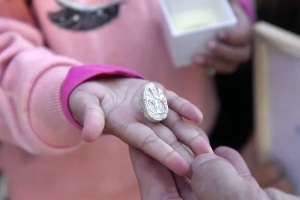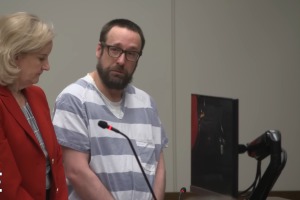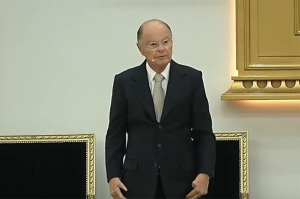Supreme Court Rejects Christian Clubs' Appeal on School's Nondiscrimination Policy
The U.S. Supreme Court on Monday denied an appeal by two religious groups at San Diego State University who sought to limit their membership to those who shared the same beliefs and values.
In a one-sentence order with no comment, the high court declined to hear the case, which came as no surprise to the Alliance Defense Fund, which represented the Alpha Delta Chi sorority and Alpha Gamma Omega fraternity.
"The United States Supreme Court decided not to hear a case today. Alpha Delta Chi (ADX) v Reed. But that's not really news considering that they decide not to hear about 99% of the cases brought to them," said David Cortman, ADF senior counsel.
"What is news though is that the issue in the case of whether religious groups can choose leaders who share their religious beliefs remains hotly contested on the national level."
Religious organizations across the country like InterVarsity Christian Fellowship and the two groups at SDSU are currently fighting to "remain religious," as Cortman described, with several universities targeting Christian groups for their purportedly "discriminatory" policies.
This includes requiring a leader to agree with the organization's statement of faith.
"Christian student groups from coast to coast are being told that it is supposed 'discrimination' to choose leaders who share their religious beliefs," Cortman told The Christian Post.
"Seemingly to most, whether a group is religious or not, having a leader who shares the group's beliefs is simply common sense. This is especially so when many other (nonreligious) student clubs are permitted to choose leaders who share their ideological beliefs or viewpoints."
This was not logic, but law, the ADF lawyer stated.
In the case of Alpha Delta Chi v. Reed, a Christian sorority and fraternity sought to challenge a nondiscrimination policy of California State universities, which says that officially recognized campus groups cannot discriminate based on religion or sexual orientation.
"No campus shall recognize any fraternity, sorority, living group, honor society, or other student organization unless its members and leadership are open to all currently enrolled students at that campus, except that a social fraternity or other university living group may impose a gender limitation as permitted by Title 5," the policy reads.
If groups refused to adopt the university's policy, they would not be eligible for things like student funding, posting signs on campus, reserving office and meeting spaces, using the school name or mascot, and promoting themselves on the university's website.
Both the Alpha Gamma Omega fraternity and Alpha Delta Chi sorority have struggled to make ends meet by refusing to adopt the policy, which they believe is unconstitutional.
ADF filed a petition in December 2011 on behalf of the two groups at SDSU, asking the Supreme Court to weigh in on a previous ruling by the U.S. Court of Appeals for the 9th Circuit, which upheld the university's policy.
Judge Harry Pregerson of the appeals court previously said that religious organizations could continue to set their own membership rules but they could not expect the university to subsidize them.
Cortman explained to CP, however, that Pregerson's remark was an inaccurate way of viewing the case.
"There is no 'subsidy' to religious groups when every student group shares in the same system of benefits set up by the school," he said. "It is more accurately an 'equal access' principle."
"The point of allowing students to form groups around those who are like-minded is to promote the supposed marketplace of ideas and to increase scholarship and debate. Nor does it increase the coveted diversity or tolerance we so often hear about to essentially silence certain groups by requiring them to be led by those who may disagree with their views."
Universities are in many ways a microcosm of society, Cortman further noted. For him, the subsidy argument would be similar to claiming that religious organizations or churches are "free to exist" but cannot use a municipality's water and sewer system, be protected by the police or fire department, or even use public roads for transportation – even though all other organizations are allowed to do so.
Though his organization had hoped to clarify the contested issue by appealing to the Supreme Court, they were rejected on Monday, continuing the battle and the confusion.
"Although I have read several theories as to why the court chose not to hear the case (including that they had already taken several cases with highly contested issues this term), in reality, my guess is that no one (outside the court) really knows the answer," the attorney asserted.
"We had hoped that the Supreme Court would have chosen to hear this case due to the continuing national importance of the issue," Cortman concluded, disappointed but not surprised by their stance.
He understood that at some point, however, the Supreme Court would in fact have to weigh in on the issue as the battled rages on between universities and religious groups.
The Alliance Defense Fund is currently evaluating their next steps, including possibly doing discovery on the supposed "new" policy that the university adopted at the 11th hour on the steps of the Supreme Court.
"It certainly should raise the question to all interested as to why the university, at the last minute, changed its policy that it so vehemently defended as constitutional for so many years. Most often actions speak louder than words."





























